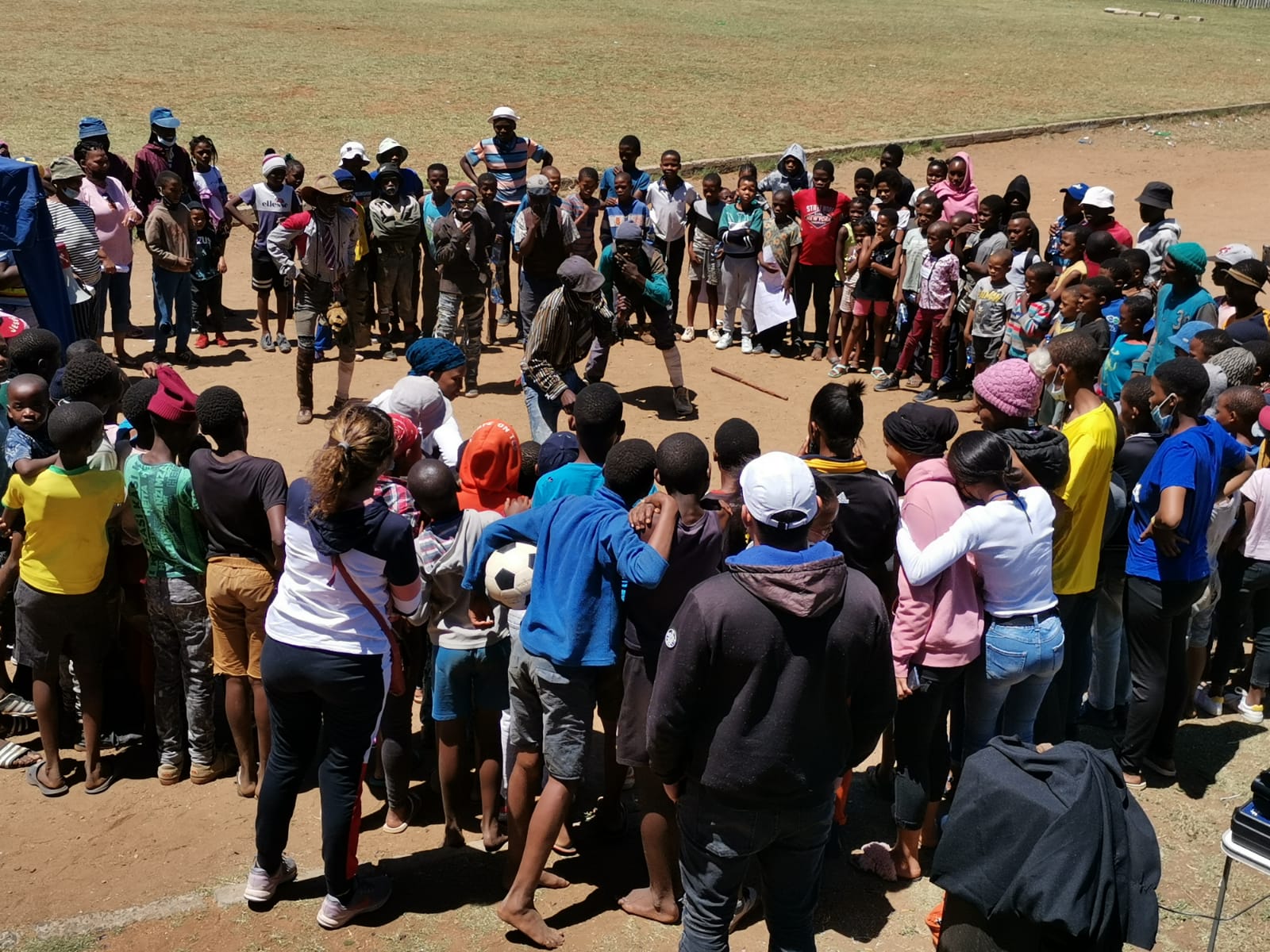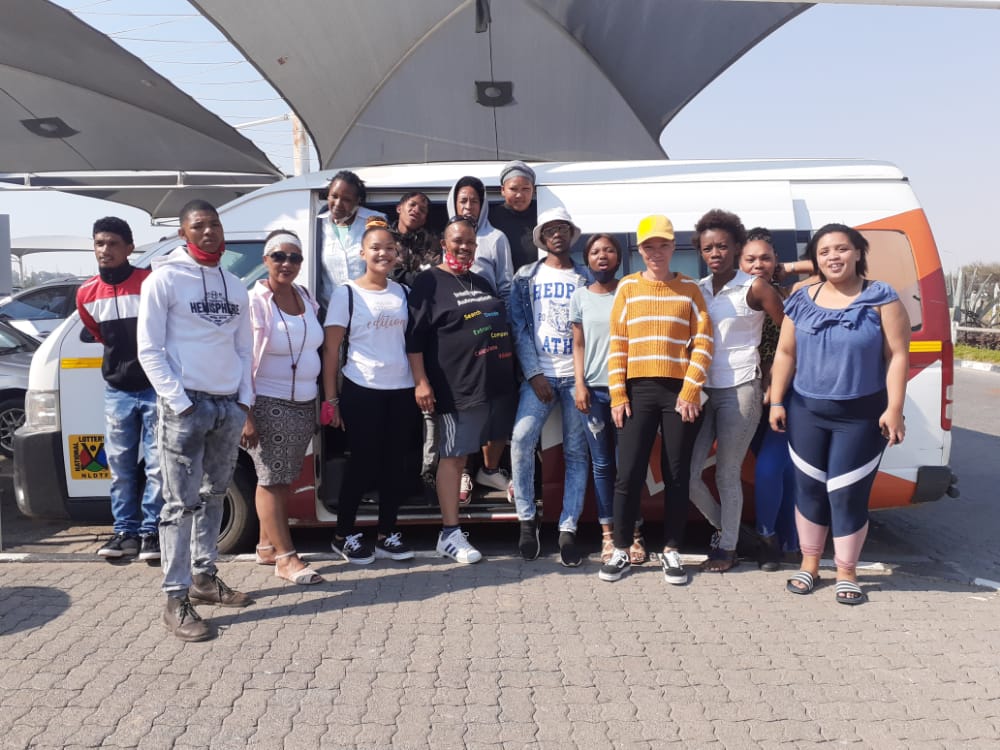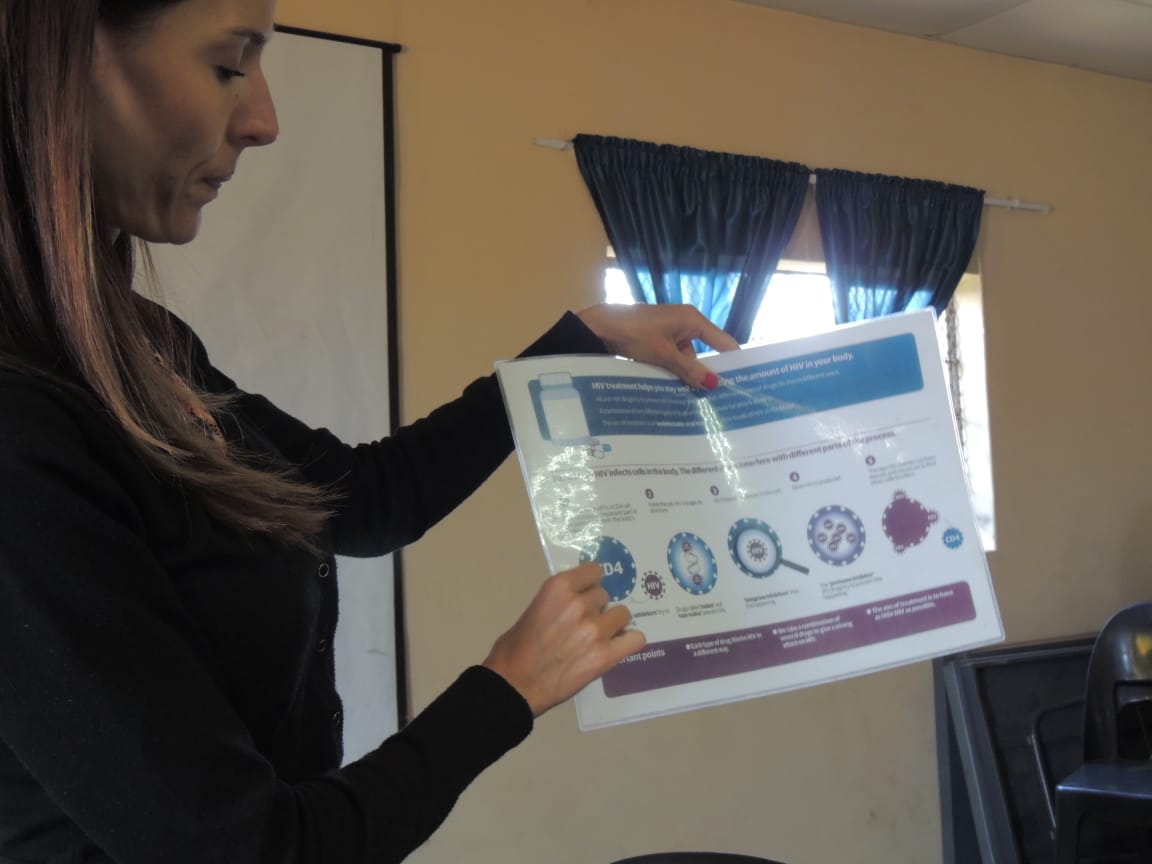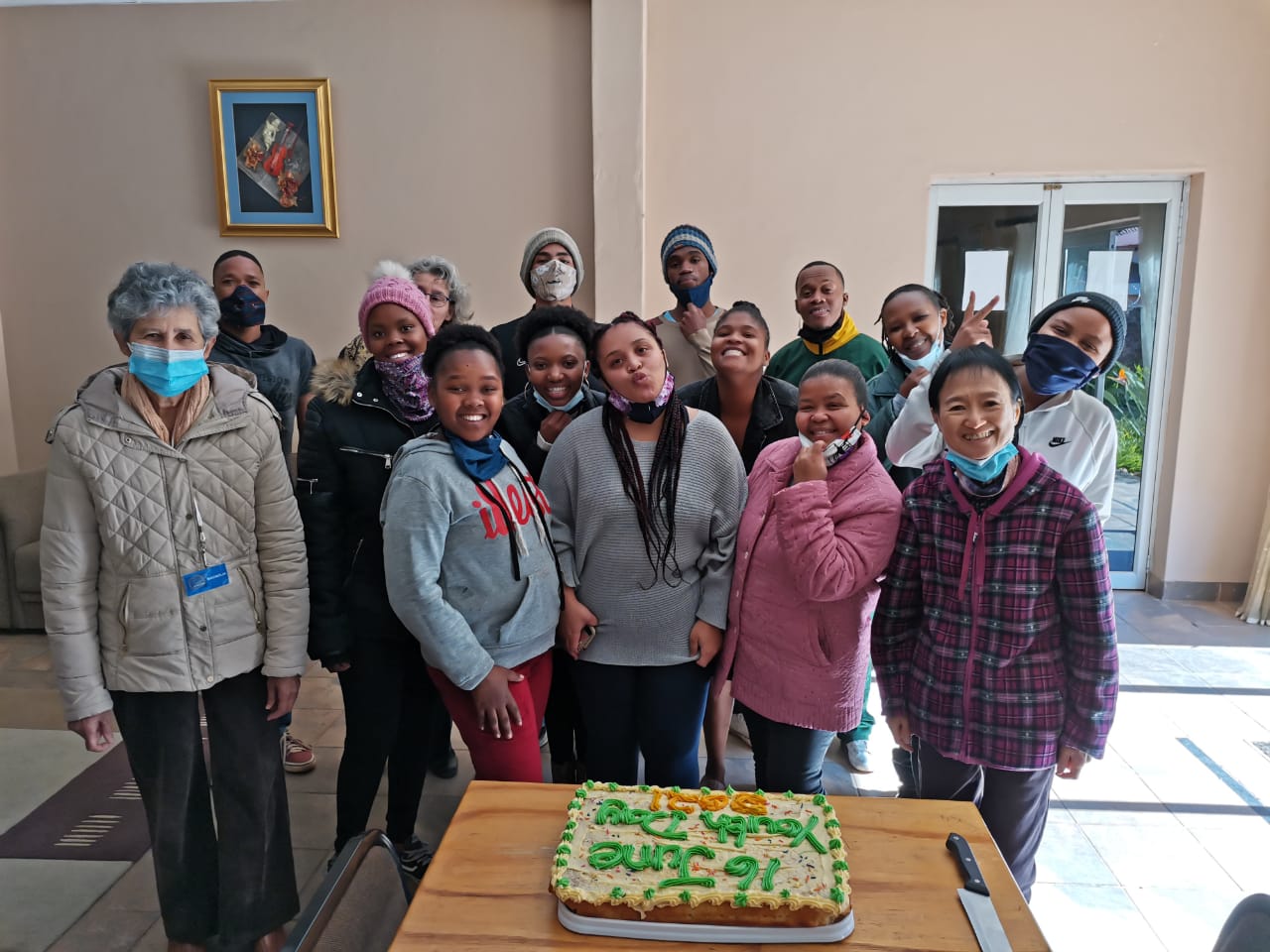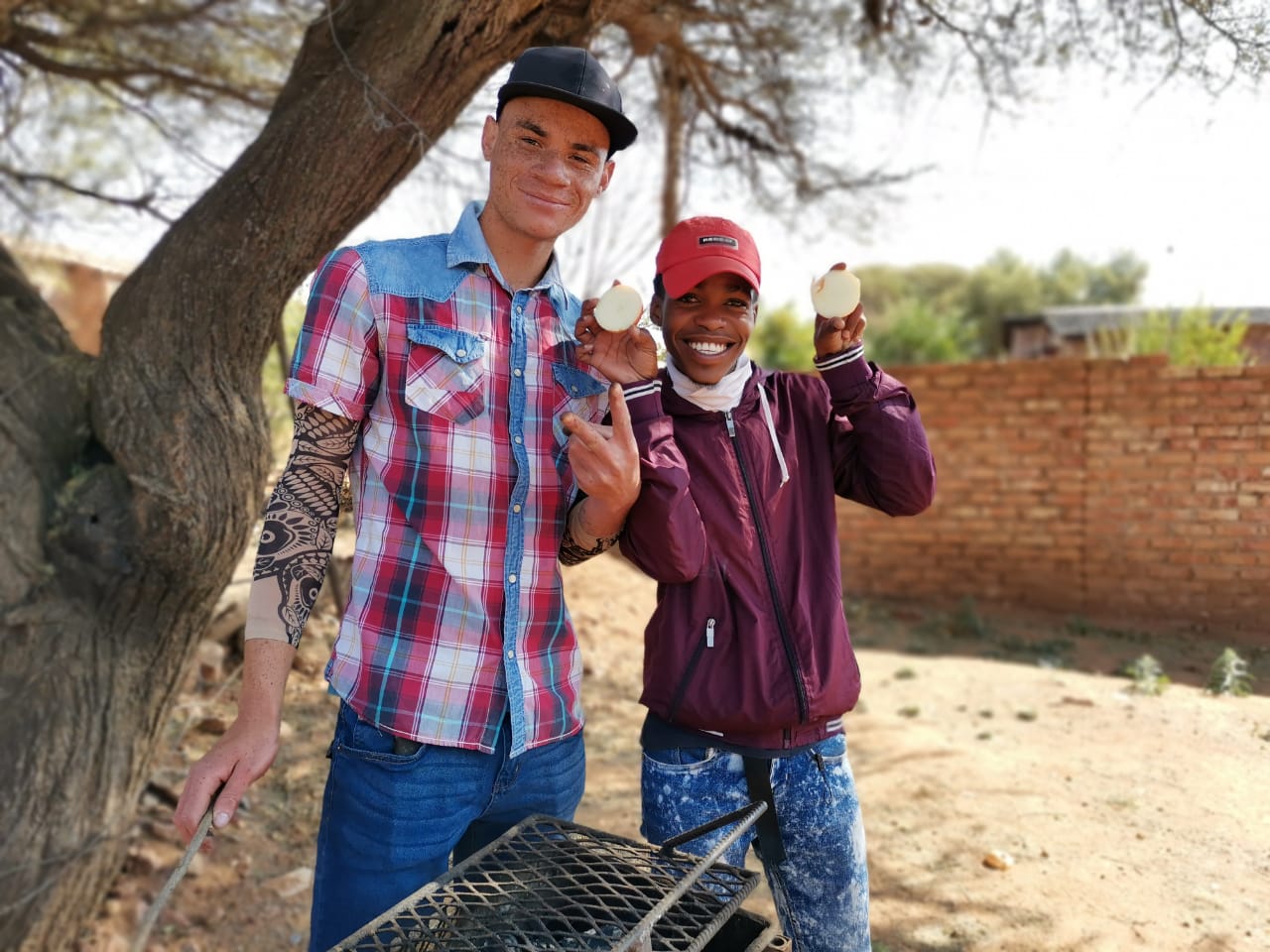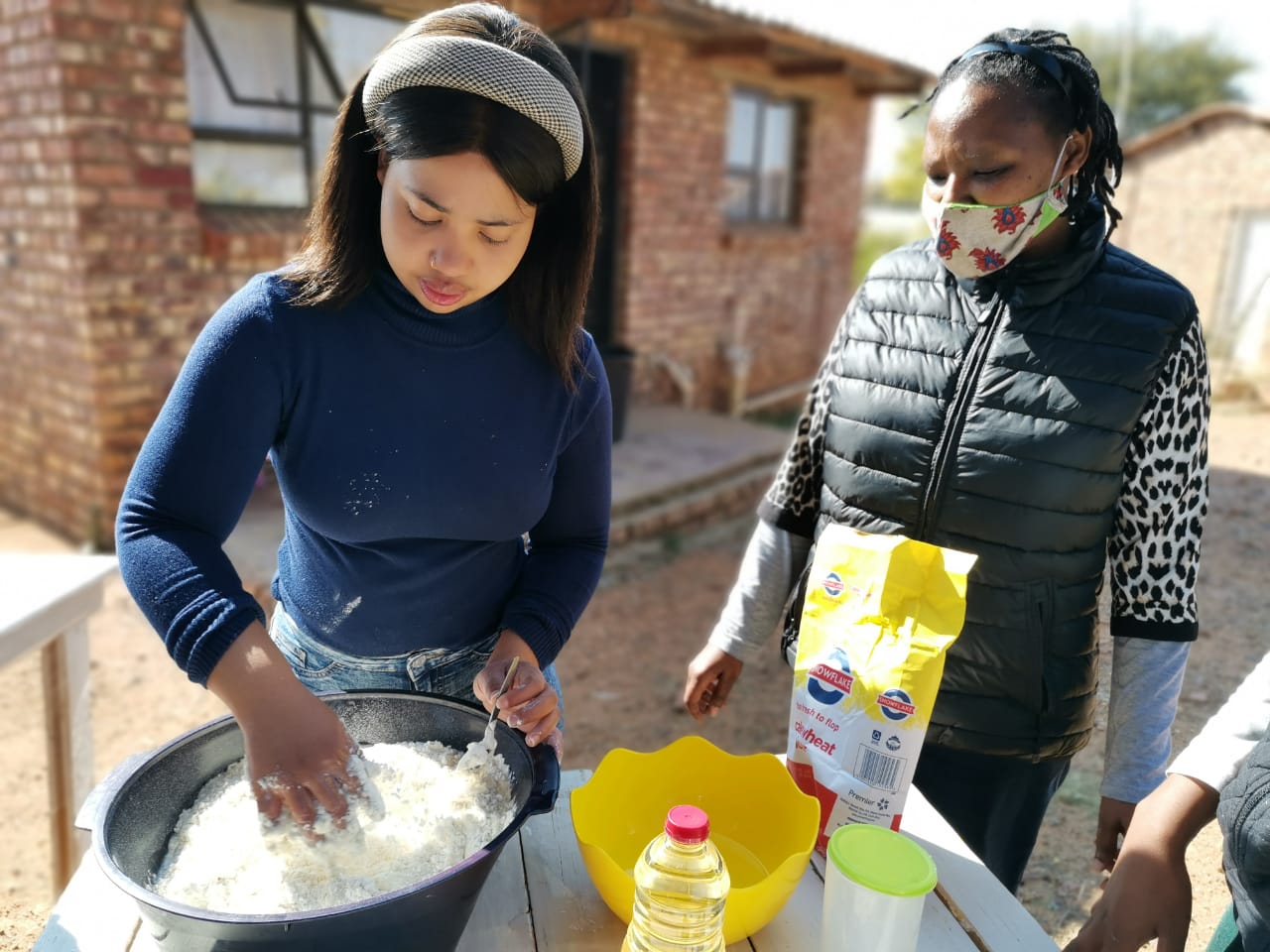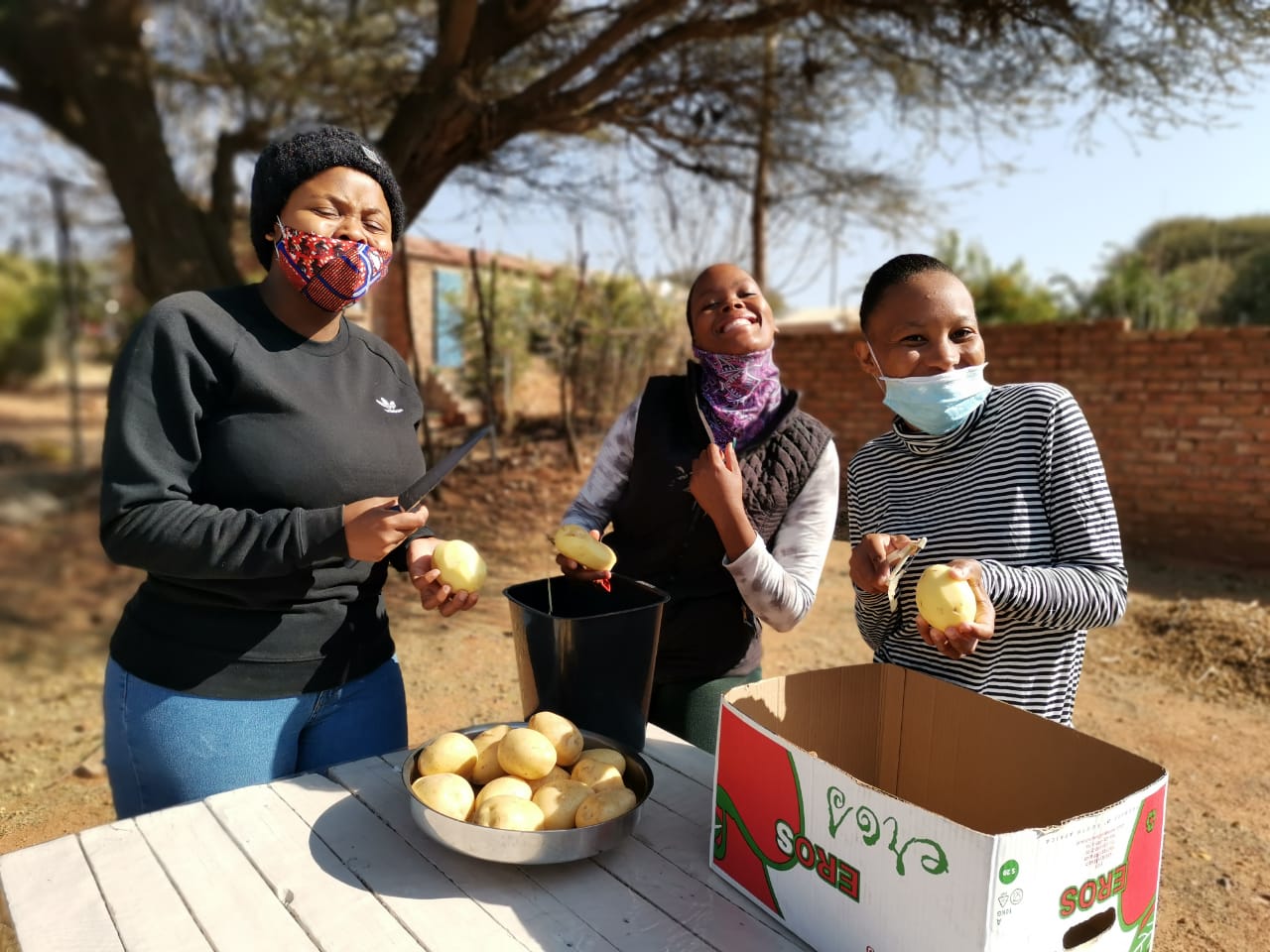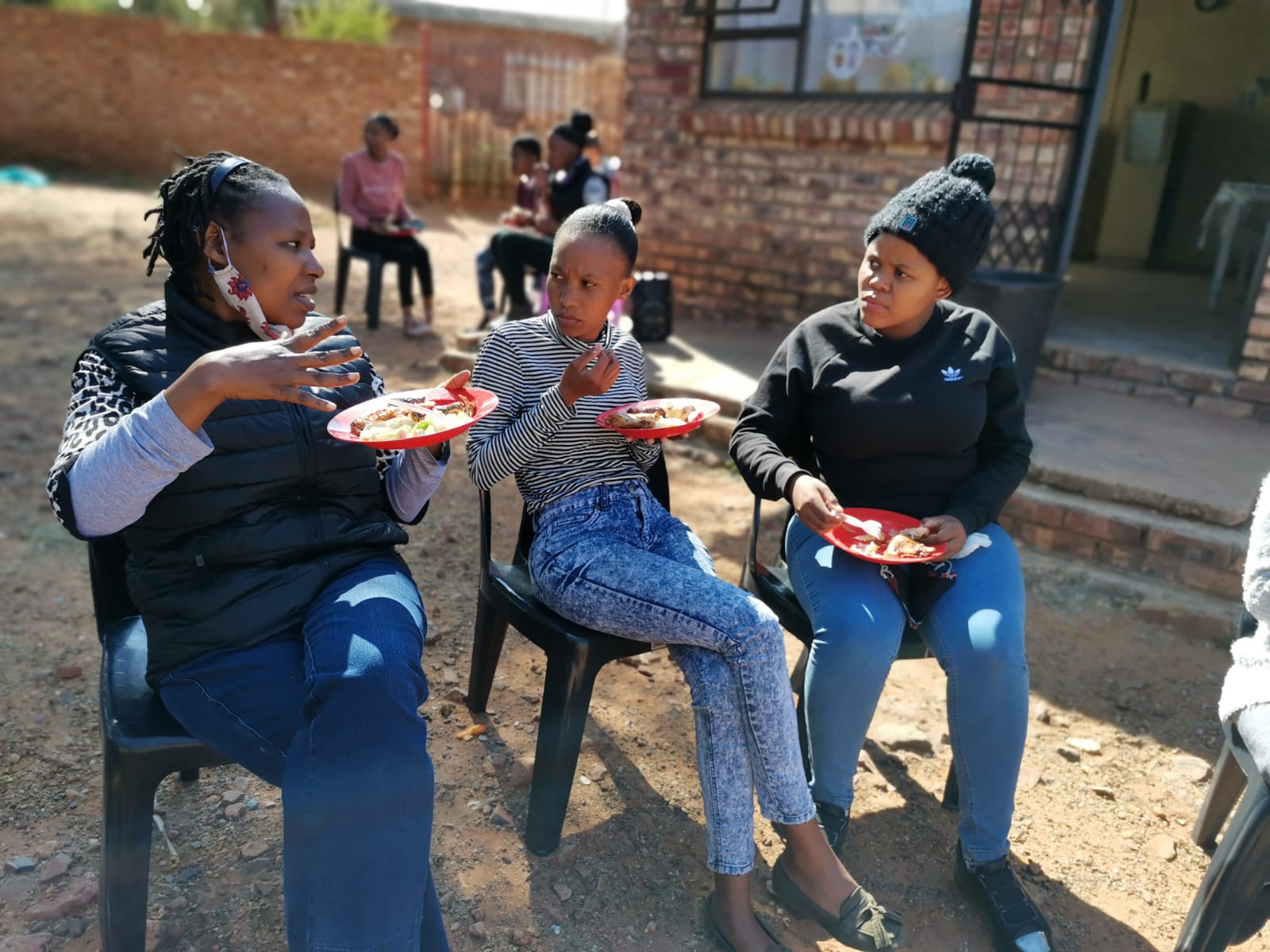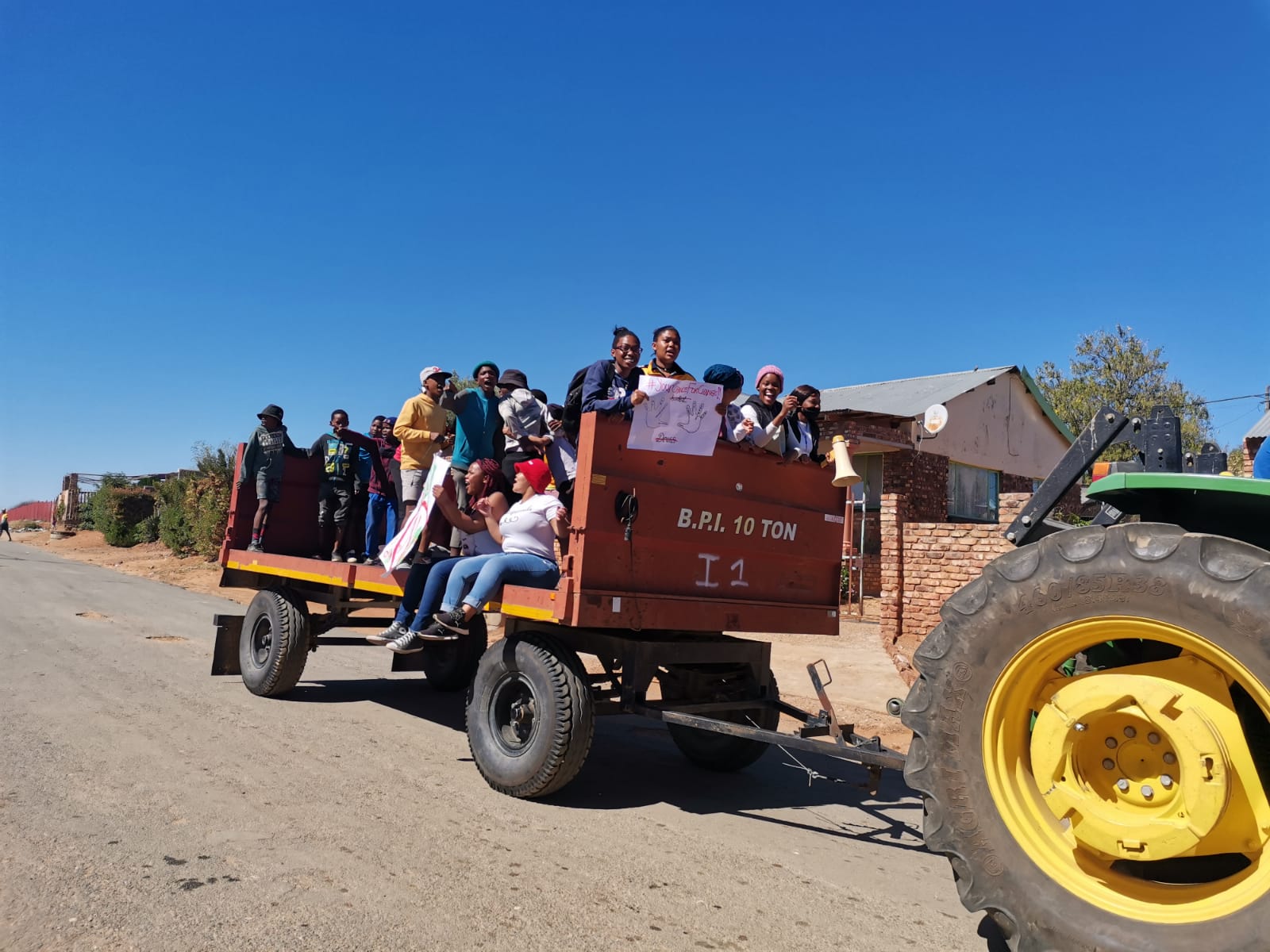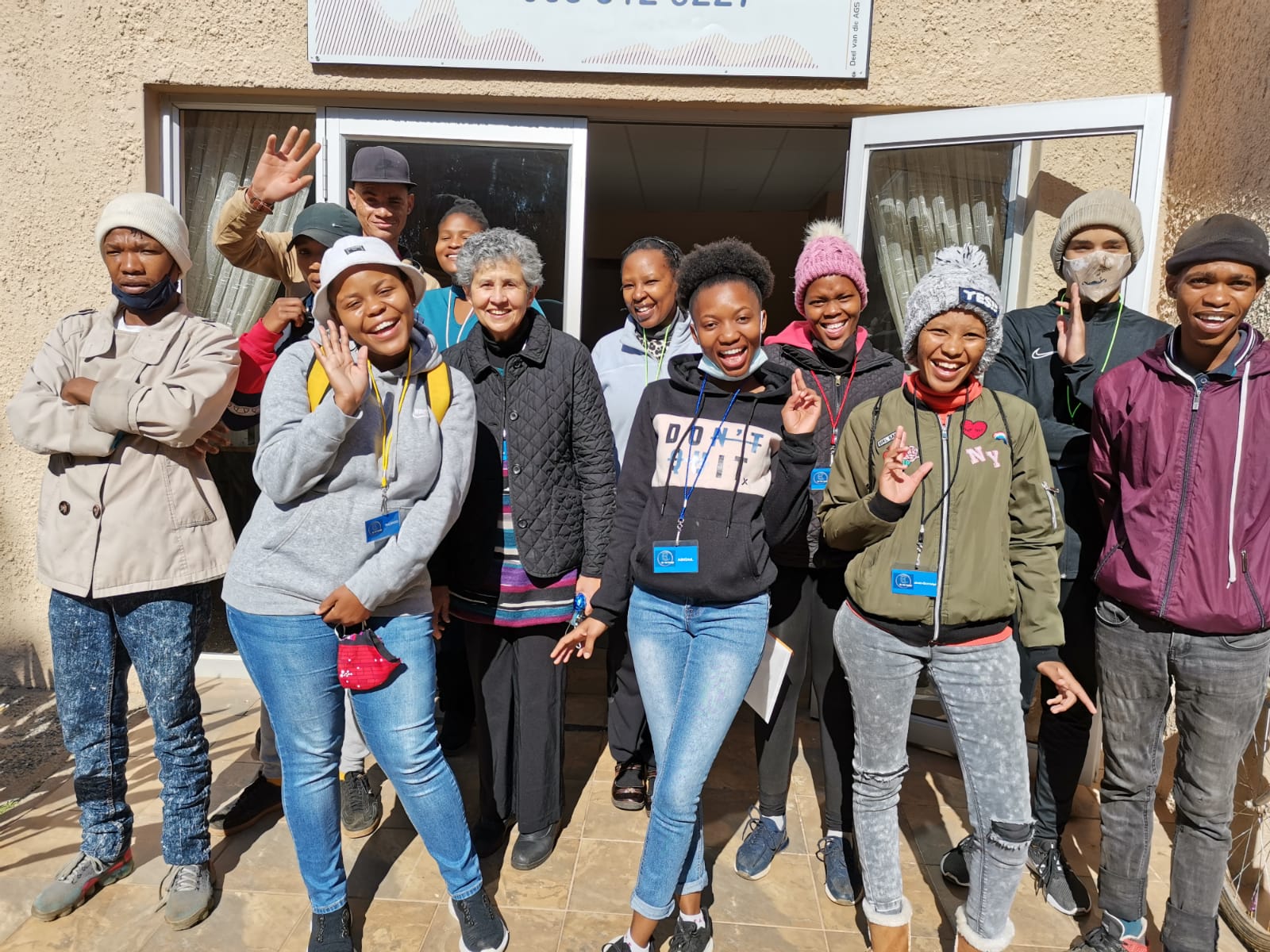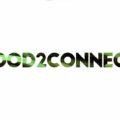
Workshop
VOICES | Be the change in South Africa
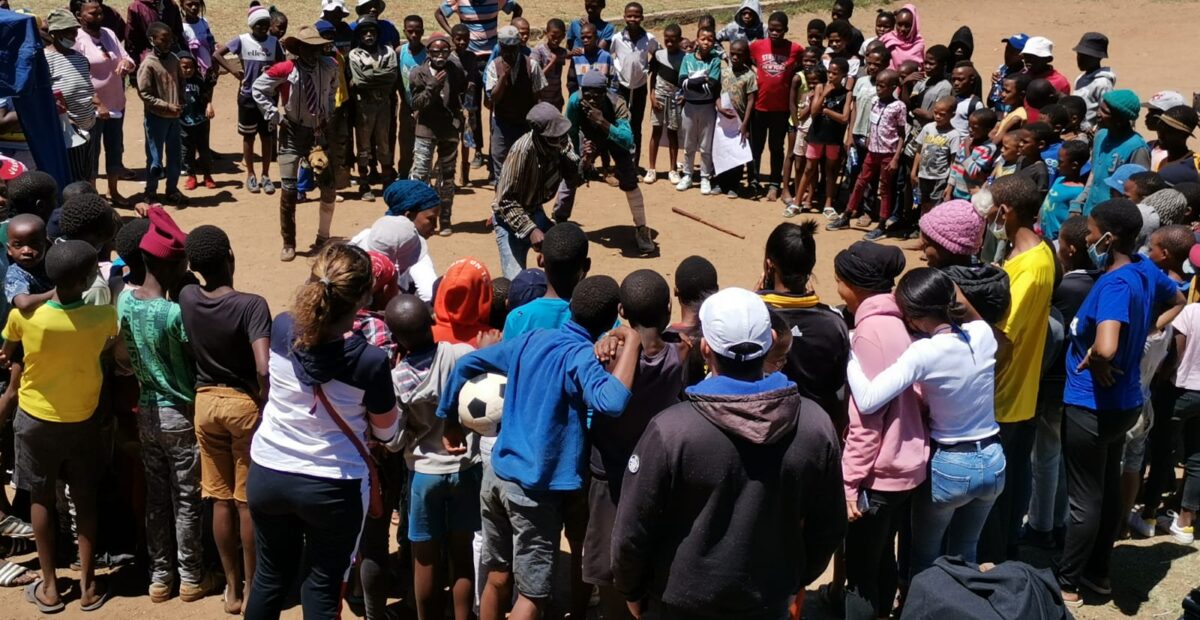
We share the experience lived and narrated by Kereditse Mothibakgomo, a young south African from the city of Hartswater, who participated along with other peers in the project “Be the change”, born to help overcome the barriers between different racial and social groups. To collaborate in favour of the disadvantaged youth and adolescents, helping them identify the needs of their community and to concretely dedicate themselves to solidarity action.
Hartswater is a small city in the semi – desert region of South Africa. It has the second largest irrigation system in the southern hemisphere and thus its economy mainly depends on the agriculture. When it became clear that the pandemic would last a long time, we asked ourselves on how to look for long term solutions.
Amongst the groups affected by the crisis, we identified the less advantaged youth of the social groups.
By connecting with other realties, we launched a project that us, the youth decided to call: “Be the Change”, as it looked forward to educate agents of transformation in environments with major risks for us youth.
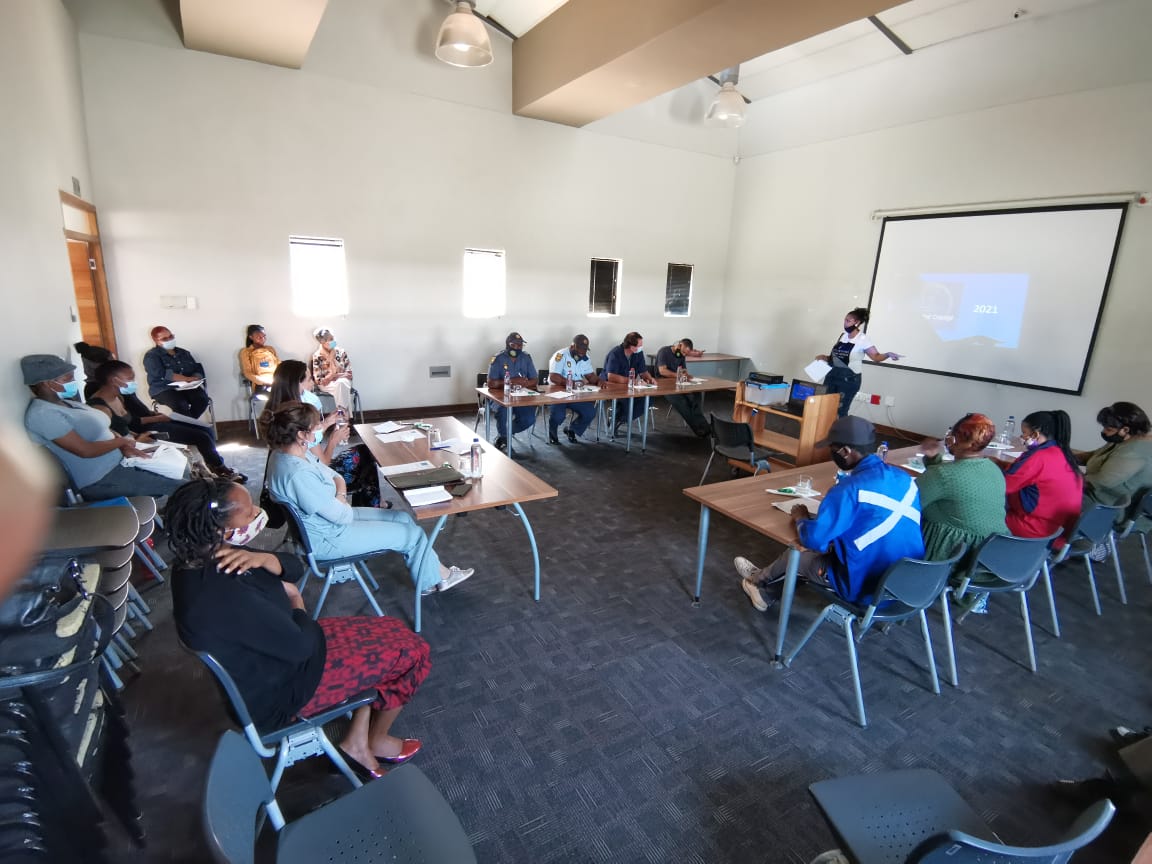
Together, we initiated a formation course of about 6 months with three lessons per week, divided into 6 modules that included the preparation for work, daily life skills, computer skills, food safety, ecc.
The first two weeks were dedicated for an intensive formation on the Art of Loving. We had different concrete experiences in this regard.
The program consisted of drafting a personal development plan with a regular monitoring, to move onto the next stages. It also included of practical acts of service for the community like the fabrication and distribution of masks, face screens and cleaning of two places.
Despite the limited number of direct beneficiaries (15 in the first course), the project raised great interest and they asked us to present it in a forum in which various entities participated, amongst which the Department for the Social Development of the province.
The program was then repeated in 2021 and 2022.
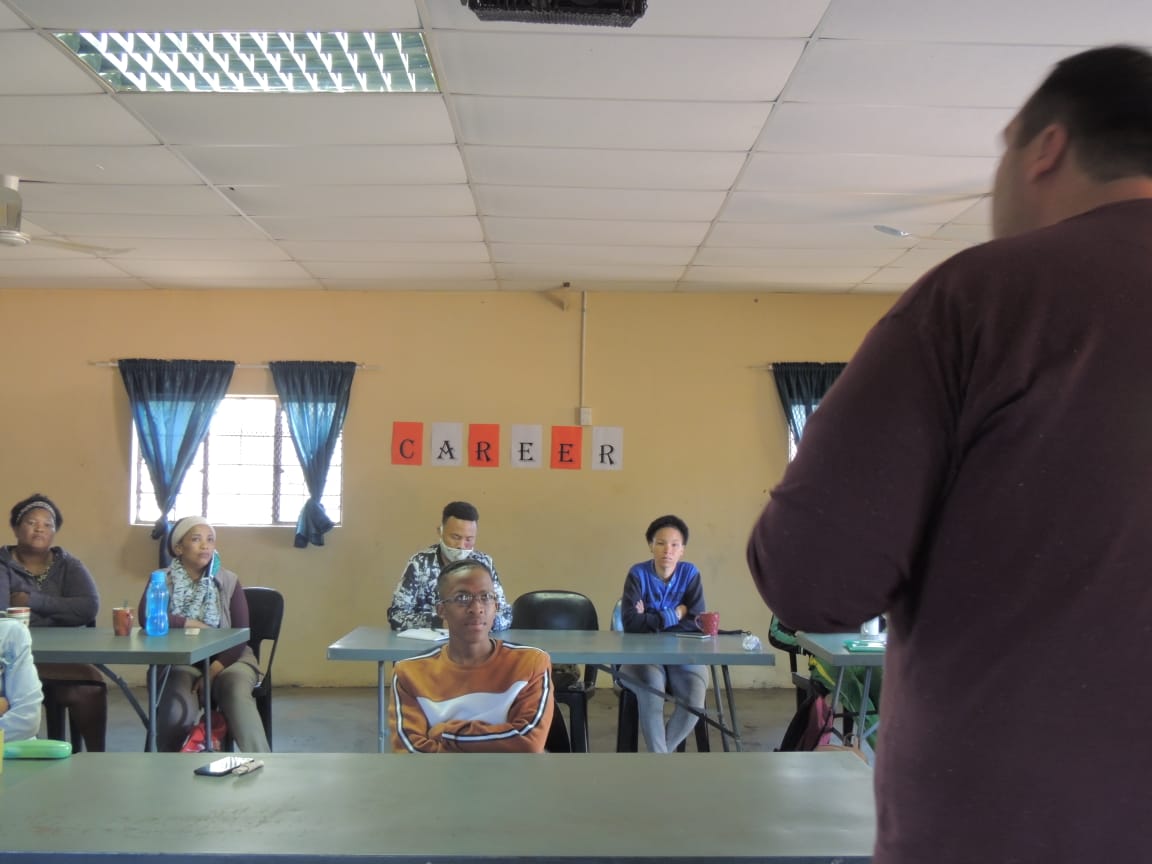
In the last course, us youth, apart from collaborating with the distribution of the food parcels, organized a business forum in which the successful white businessmen came to the peripheries for the first time, to share their experiences and skills with entrepreneurs of other racial groups, despite the strong racism inherited from the apartheid regime.
We further organized an alcohol and drug abuse awareness campaign in which we involved different subjects like the social section of the police, the ministry of health, pastors from some churches, ecc.
Amongst us youth who participated in the course in these two years, some have found a job, others have enrolled in universities or in professional courses, being an example to many other youth like us, that yes, it is possible being the change!
To know more…
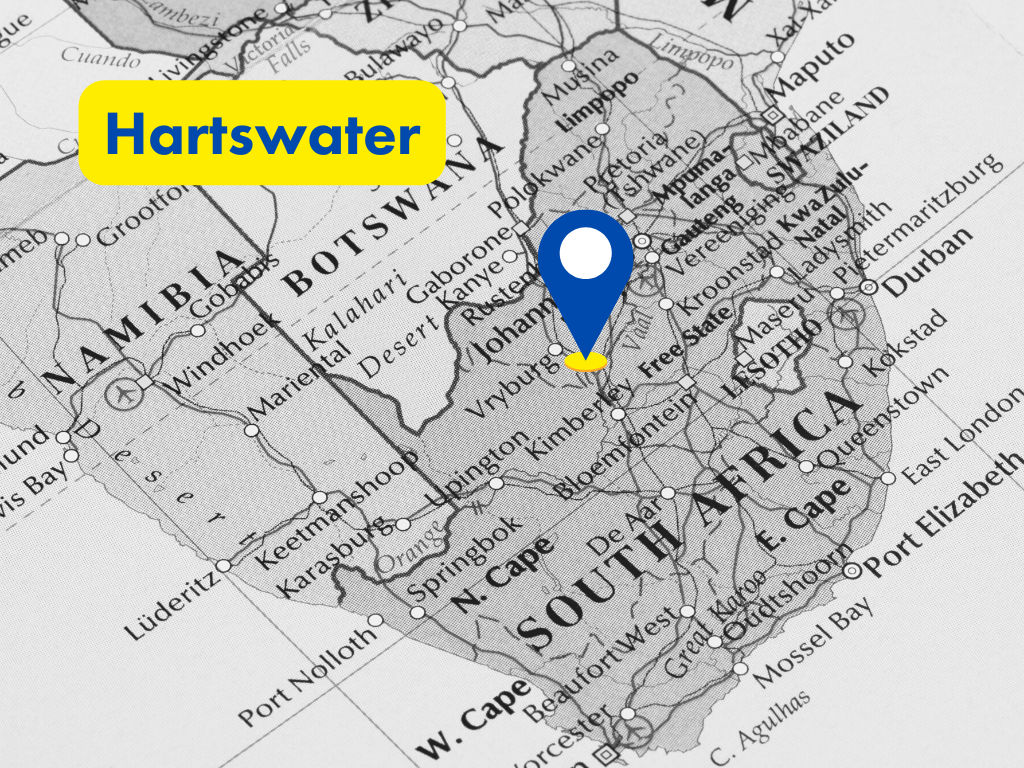
Hartswater, in south Africa, is an agricultural town of about 10.450 inhabitants, at the centre of the Vaalharts irrigation system, one of the largest of the world that guaranties irrigation to almost 40.000 hectares of land of the country. At Hartswater, the people mostly live from agriculture. Some manage by being hawkers or with seasonal works, often informally. Here, the consequences of the many years of the apartheid are still alive. The official data goes back the year 2011 and does not reflect a constantly growing population. In fact, there are numerous informal settlements that have emerged without the necessary urbanistic plan or the necessary infrastructure and services, often the result of illegal land invasions. The population’s density varies from 254,03 people per km², in the urban centre of Hartswater to about 5.762,96 in the suburbs. This means an average of 41.18 m² per inhabitant in the urban center, compared with 1.73 m² per inhabitant in the suburbs. In the informal settlements the demographic density is even higher. There is no available data regarding this but, as the promotors of the “Be the change” project explain, the simple live observation highlights the gravity of the urban inflation.
The youth make up 56% of the entire population. Even though they represent a resource for society, they do not receive the needed attention. The consequences of the racial discrimination are still evident in the educational field. In fact, the educational skills of the black and mixed-race youth are inferior to the ones of other ethnic groups. This contributes to maintaining the cultural gap and the risk of social marginalization.
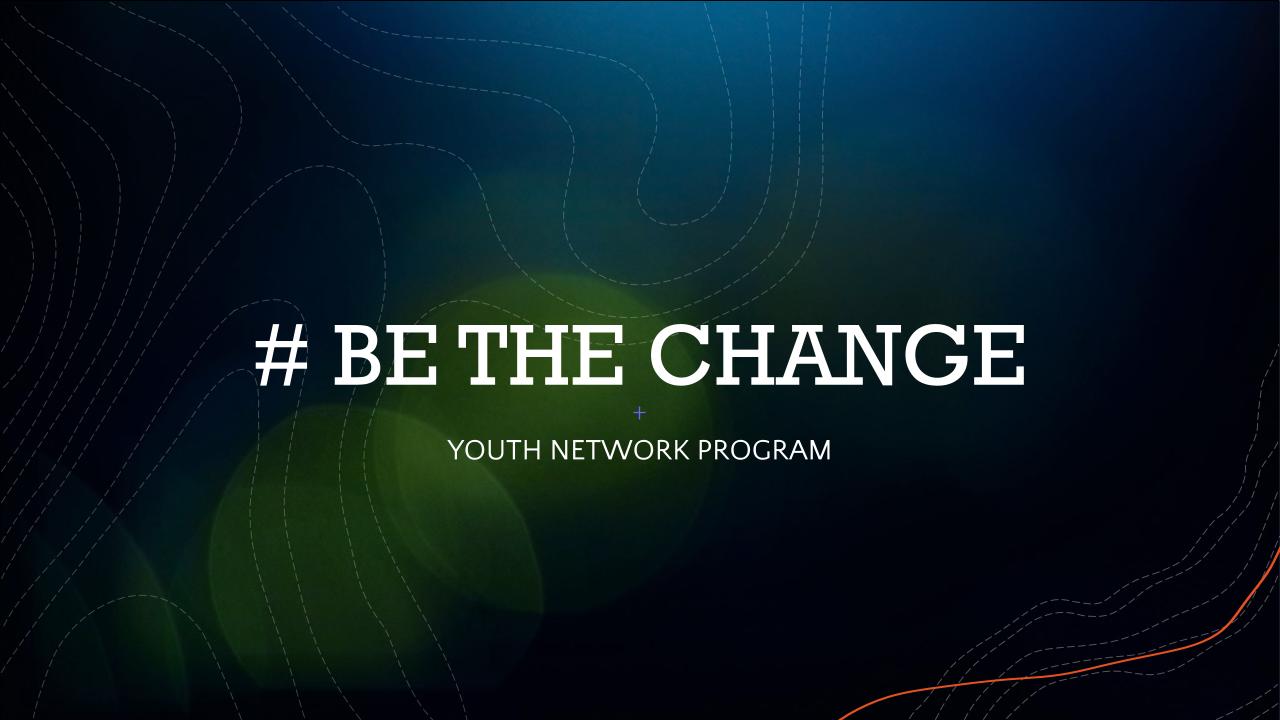
Be the change
From the year 2018, the Focolare Movement is engaged in an educative project called The Bridge at Hartswater, that was born to create a mediation amongst the different ethnic groups who populate the neighbourhood of Bonita Park bridging the distances and cultural differences. This is thanks to the creation of an after-school program and a place that is also a small garrison of dialogue and encounter between different cultures, for children and teens.
In the past, different awareness activities were organized, like sports events, ecological campaigns, ecc. With the start and enduring pandemic, that made poverty even more serious, the necessity for a wider rescue plan for the young generations emerged. So, in 2020, in collaboration with the Oasis and Victory House (already operating ONG’s in the communities of Bonita Park and Jankempdorp respectively) the program called “Be the Change” was implemented and then repeated in the following years.
The main objective of the project is that of contributing to overcome the barriers amongst the different racial and social groups, to work together in favour of the disadvantaged youth and adolescents, helping them identify the needs of their community and to concretely dedicate themselves to solidarity action.
Specifically, the journey of “Be the Change” develops starting from “the Art of Loving” proposed by Chiara Lubich, and illustrates the contents brought by the “Transformative pedagogy” of the UNESCO and from the evangelical spirituality of unity followed by various workshops, with expert’s contributions (life skills, spiritual formation, preparation for work, ethics, nutrition, education for peace, ecological education, ecc.). Lastly, the participation promoting ecology, food safety, health and awareness activities with other agencies active in the area, involving other youth and adolescents.
From this year, “Be the Change” will continuo by focusing on women empowerment.
